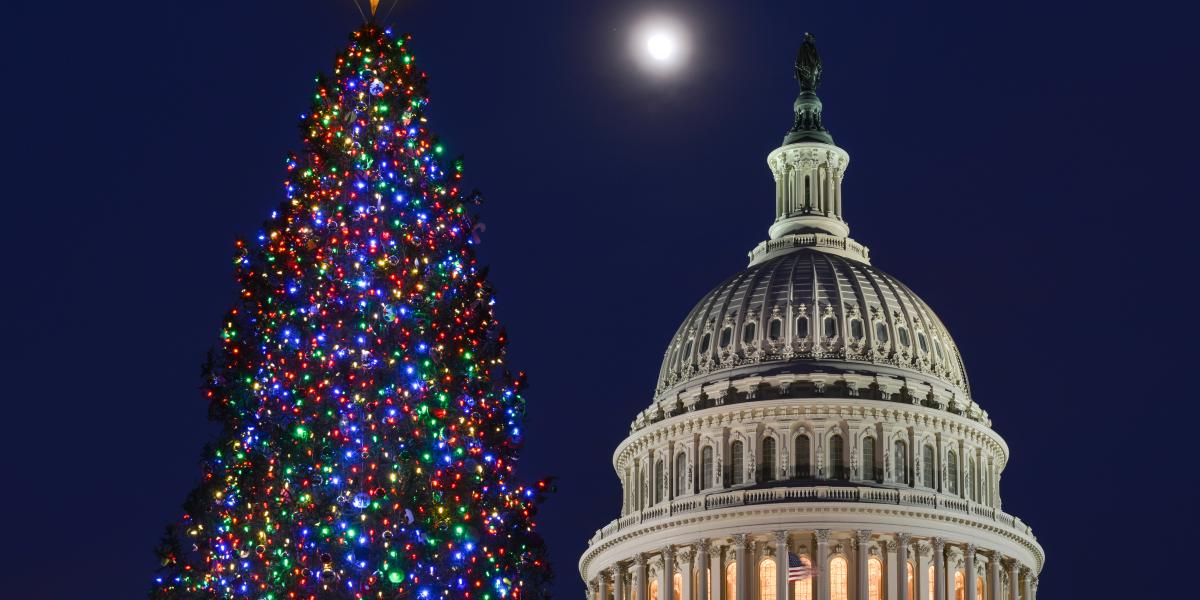This week saw a new twist in what has become a D.C. Christmas tradition. I am not referring to the lighting of the White House Christmas tree but to passage of a “continuing resolution” (CR) funding the government and thus avoiding a Christmastime government shutdown.
It took the production of three separate CRs before one passed in the Senate after midnight Friday night and was then signed by President Joe Biden.
A reason an earlier CR failed to obtain congressional approval was that President-elect Donald Trump, Vice President-elect J.D. Vance, and Department of Government Efficiency (DOGE) heads Elon Musk and Vivek Ramaswamy called on Republicans to oppose it. There was also opposition to the inclusion of new spending, including 100 billion dollars in disaster relief and an extension of the farm bill along with billions of dollars more in aid for farmers. The farm provisions were added at the request of Republican representatives from rural areas. Many of these Republicans denounce welfare spending and crony capitalism, while fighting to increase subsidies for large agribusinesses and rich farmers. The CR that ultimately passed included the disaster relief and the farm provisions.
President Trump wanted the CR to raise or suspend the debt ceiling that was expected to be reached soon. It is understandable that President Trump would want to avoid a fight over the debt ceiling early in his second term. However, refusing to raise or suspend the debt ceiling would benefit President Trump’s efforts to reduce wasteful spending.
The debt ceiling was created during World War One to allow the Treasury to sell bonds without first obtaining congressional authorization. Contrary to the claims of the big spenders, failure to raise or suspend the debt ceiling would not force the government to default or cause the government to not “pay its bills.” Instead, it would force the government to do what ordinary people who find themselves over their heads in debt have to do: reduce other expenses in order to pay their bills. Saying a failure to raise or suspend the debt ceiling is irresponsible is like saying a credit card company is irresponsible for refusing to extend credit to a deadbeat.
Raising or suspending the debt ceiling helps enable the continued growth of the welfare-warfare state, but the real enabler of Congress’s spending is the Federal Reserve’s monetization of government debt. The Federal Reserve monetizes the federal debt via the purchase of Treasuries. Congress should pass legislation forbidding the Fed from purchasing Treasuries so the Fed can no longer enable Congress’s reckless spending.
The Constitution gives Congress two primary responsibilities: appropriating federal funds and declaring war. Congress long ago abdicated its authority to declare war. The practice of funding the government through CRs and omnibus spending bills drafted by a few members and rushed through Congress before most members have a chance to read them deprives most members of the ability to fulfill their constitutional responsibility to help determine how to best allocate taxpayer dollars. It also denies members an opportunity to offer amendments cutting spending. This is why everyone who supports constitutional government and who understands the dangers of increasing government debt should support ending Congress’s Christmas tradition.
Note: The views expressed on Mises.org are not necessarily those of the Mises Institute.
Originally Posted at https://mises.org/

